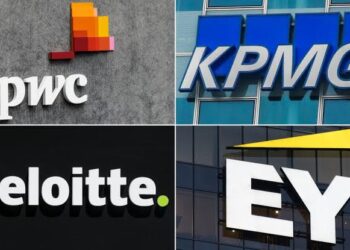On Wednesday, October 23rd, 2019, the Central Bank issued a new circular that once again spooked the financial markets to its core. In one of several circulars released during the week, the Apex bank restricted purchase for its much-coveted Open Market Operations (OMO) to only foreign investors and local Nigerian Banks.
Thus, freezing out corporate Nigeria and individuals from being able to purchase OMO from both the primary and secondary markets. The CBN under the leadership of Godwin Emefiele will probably go down in history for its unorthodox monetary policies but this latest move is stuff made of gimmickry.
The Open Market Operation is basically designed to be a short-term market instrument that the CBN uses to control the supply of money in the economy. Whenever the CBN believes the inflation rate is high due to increased money supply it sells OMO bills at high-interest rates mopping up liquidity from the economy. On the flip side, if it believes there is a liquidity squeeze due to high-interest rates it buys back OMO bills flooding the financial market with cash so that. As you’d expect these are short term bills that typically should not be more than 90 days, except that these days OMO Bills are now sold with maturity as long as 365 days competing toe to toe with Treasury Bills.
Why OMO: Data from the CBN indicate it has a total OMO Bills of about N13.8trillion out of which local banks held N3.95 trillion, corporates N3.7 trillion and foreign investors N6.1 trillion. In fact, OMO Bills were as high as N17 trillion in August as the CBN sold more bills in a bid to “control the supply of money”.
[READ ALSO:How to invest in treasury bills even if you don’t have N50 million(Opens in a new browser tab)]
OMO bills also attract a juicy interest rate of about 15% per annum making them one of the most sought-after securities in Nigeria and indeed emerging markets explaining why foreign investors hold nearly half the size.
Exchange Rate Stability: The CBN under Godwin Emefiele is understood to have one major mandate; keep the exchange rate stable at all costs and avoid devaluation. This is the cornerstone of his monetary policy and underlines every action the CBN has taken since the Buhari administration came into power in 2015.
To keep his mandate of keeping the exchange rate stable at N360, the CBN has had no choice but to keep interest rates high, mopping up naira from the economy relying on OMO sales. However, the major incentive for offering such high-interest rates is foreign investor dollars. The CBN’s FX reserve of $40 billion can only be sustained if foreign investors hold back on repatriating their money. Some reports seen by Nairametrics indicate foreign investor holdings of OMO Bills is a staggering $17 billion explaining why OMO is such an important monetary tool for the CBN.
To keep their appetite strong, the CBN offers them high-interest rates and will continue to do this so long as its objective remains to keep the exchange rate stable and avoid devaluation. Unfortunately, this decision to sell OMO bills at a 15% interest rate is taking a toll on the CBN’s balance sheet. Analysts opine it is costing the CBN has high as N2 trillion in 2018 from over N1 trillion in 2017 and expected to hit a whopping N2.7 trillion in 2019 in interest rates.
Yanking off Corporate Nigeria: Party planners typically do one thing when they are on a shoe-string budget but still want to have a stupendous party with lots of freebies. They cut down the guest list and ensure the party is strictly by invitation. This is basically what the CBN did when it decided to cut out corporates including pension funds, mutual funds, insurance companies, treasury departments of multinationals and large companies from participating in the OMO market.
[READ ALSO: CBN’s T-bills auction records oversubscription amidst foreign investors sell-off (Opens in a new browser tab)]
Sensing that what it wants is dollars, corporate Nigerian (except banks) became casualties of the great interest rate party. The CBN is giving out high-interest rates to maintain its dollar reserves and attract more forex inflows as such it probably sees no reason why it should allow non-banks into the party. Foreign investors will continue to provide dollars while banks will provide some liquidity.
Others are just in for the freebies so why not just cut them off. So, by stopping non-banks from buying OMO bills from the primary and secondary market, these investors will have to now divert their attention towards treasury bills and other fixed-income security which as you’d expect have lower interest rates. This has several implications for the Nigerian Economy.
Yields could fall: Pension Funds, Insurance Companies, and other institutional investors will now have to rely on treasury bills and bonds to invest their money. Unfortunately, this market lacks the sort of volume and availability OMO bills are characterized by and does not offer the same interest rates. Ironically, some analysts believe interest rates could crash for bonds and treasury bills, with the ensuing increase in demand. Deposit rates could also fall as banks now have the upper hand against their big depositors who no longer have the option of going the OMO route.
[READ ALSO: CBN intervenes with $8.28 billion to defend Naira (Opens in a new browser tab)]
Ricochet on foreign investors: Whilst the CBN may have reassured foreign investors that they are always invited to its part, this move could hold some inherent risk for those it seeks to protect. By restricting local participation in the market to banks, the CBN has effectively squeezed out liquidity in the secondary market. A research report sighted by Nairametrics indicates about circa 25% of the market liquidity has now been extinguished.
This means foreign investors who decide they want to sell OMO bills and repatriate their dollars may have to rely on banks to buy giving them fewer options, a move that can significantly play on price. Indeed, if nothing this latest move suggests desperation on the part of the CBN arousing concern from more risk-averse foreign portfolio investors.
What next: The last couple of weeks have seen the CBN pull off several policies aimed at keeping the exchange rate stable often in the guise of increasing lending to the real sector rather than to risk-free government securities. However, this gimmickry is overplayed and at some time will crystallize on the CBN. When it does, we hope we will still have an economy to savour.























Until the CBN and its employer, the Fed Gvt are ready to pull in real investors, this gimmickry will never end until it explodes in their faces. A better route for the economy is to plan a phased reduction of reliance on TBills, Bonds and this OMO instruments. Unilaterally reduce all rates of these instruments across board and set up an Investment Matching Fund alongside Investment Incentive Policies like tax rebates, tax exempts, duties exempts for key industries that accelerate development and employment. The fund should match any real investor’s fund coming to setup manufacturing concerns, and other value-added business that turn our raw materials to valuable semi-finished and finished goods. But then, is there a right thinking, altruistic political class in Nigeria? Time will tel
Good report.
So very sad we have been cowed in these primitive ways… It is very difficult to demonstrate the value of education in Nigeria, particularly in our public governance..!
“The CBN’s FX reserve of $40 billion can only be sustained if foreign investors hold back on repatriating their money. Some reports seen by Nairametrics indicate foreign investor holdings of OMO Bills is a staggering $17 billion explaining why OMO is such an important monetary tool for the CBN”
This statement is misleading. Are FX repatriations primarily/exclusively funded via the CBN reserves?
FX repatriations can be funded by both the government (which should be a primary source), and local buyers (which are secondary sources or the black market).
Once again the CBN has shown desperation in the manner they approach reserve management. Rather than confront the truth that they have expanded their balance sheet in acquiescence to the federal governments rather imprudent fiscal state, they seek to control demand and hope that supply shortage will drag yields down. My guess is Nigerians should prepare for another round of devaluation soon
From several reports (all which are available online), the central bank has been propping up the naira for the past two years. This is, of course, unsustainable and this particular fix would soon become ineffective. But I believe the CBN has achieved massive strides in reducing our dependency on the dollar.
I feel Godwin Emefiele is the smartest CBN governor Nigeria has ever produced. Not only is he advocating for a more robust reserve to increase the value of our currency he is pushing for a regime of cheap money and low inflation/interest rate as seen in developed countries like europe and USA where more emphasis are on Stocks and development of business through cheap lending. It takes mind and courage to execute this and I commend him. Now as rate are fallen more attention for go in real sector development against just buying fixed instruments and just go to bed. Everything has a ripple effect and I believe other regulators bodies will be up to their responsibility to cub inflation by price checks in the face of stubborn producers how want to increase price due to increased demand instead of increasing output by seeking for loans which now has low rate the regime of greed is over let us all have common sense for the development of Nigeria
Good Policy, the whole framework is built around reduction of the interest rates to recreate adequate incentives for the requisite funds to the real sectors of the economy.The truth is, if interest rates for T bills and government debt instrument is double digits,it naturally creates the incentives for placement of funds here rather than lending with its attendant risk and NPLs propensities. Slowly the Nigerian economy would work with its attendant price of course.Their appears a glimmer of hope on horizon for the economy .
Answering Henry, your proposed over hauling solution is not attractive to the FX Investors the Monetary policy must attract. The OMO must only get more efficient I believe and the Gimmiks, though might be unethical or without politically solidarity, it might be the best move for now. Let’s watch how Godwin navigates from here following the response of the market. Meanwhile the fiscal imbalance is not going to change soon.